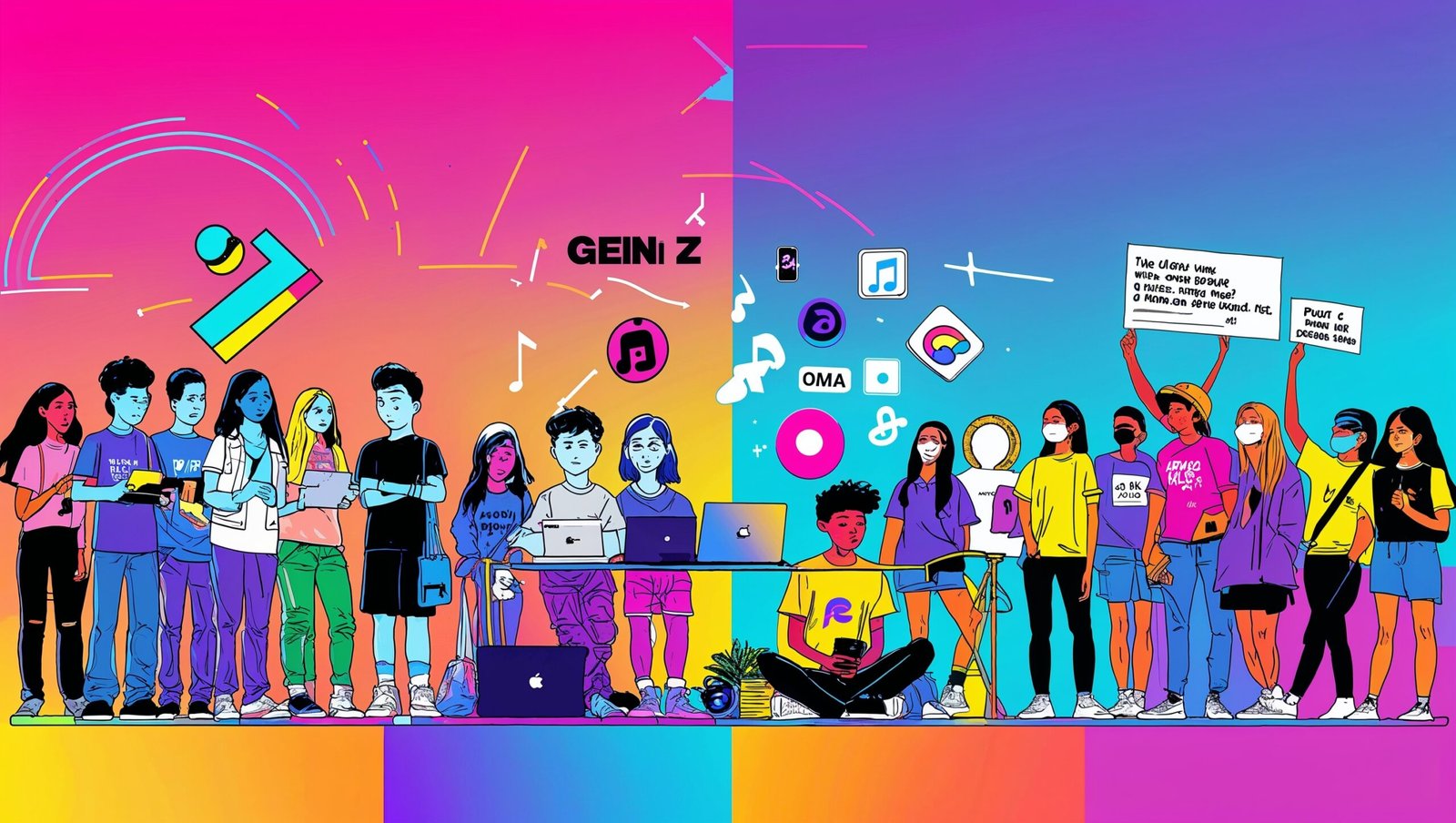Generation Z: A New Digital Era
Generation Z, often abbreviated as Gen Z, encapsulates individuals born approximately between the mid-to-late 1990s and the early 2010s. As digital natives, Gen Z has grown up in a world heavily influenced by technology, social media, and rapid advancements in communication platforms. This group represents a significant shift in cultural and social dynamics, setting them apart from previous generations.
Defining Characteristics of Gen Z
Gen Z is distinguished by their adeptness with digital technologies. Unlike their predecessors, members of this generation have never known a world without the internet, smartphones, or social media. Their fluency in these areas fosters connectivity and a global outlook, making physical boundaries less significant.
Beyond their technological savvy, Gen Z is marked by a strong sense of individualism and diversity. This generation values social justice and equality, often championing causes related to the environment, racial equality, and gender rights. Their commitment to these issues is seen in their involvement in social movements and online activism.
Gen Z and Education
The educational pursuits and methods of Generation Z reflect their digital background. E-learning and online resources are not supplementary but central to their academic lives. This shift towards digital learning environments supports their learning preferences, including interactive and self-paced modules.
Moreover, Gen Z’s approach to education is more flexible and diversified. With options such as online courses, boot camps, and apprenticeships, they often seek education that is practical and applicable rather than strictly traditional or theoretical.
Gen Z in the Workforce
As Gen Z enters the workforce, they bring with them expectations shaped by their unique upbringing. Work-life balance, mental health, and personal fulfillment are high priorities, influenced by a desire for meaningful work that aligns with their values. Flexible work arrangements, such as remote work, are not only preferred but often expected.
Their proficiency with technology also means that Gen Z is well-suited for roles that require digital innovation. They are adept at using new tools and platforms to enhance productivity and foster collaboration, making them valuable assets in a rapidly evolving job market.
Social Media and Gen Z
Social media is a defining feature of Gen Z’s social environment. Platforms such as Instagram, TikTok, and Snapchat are integral to their daily lives, serving as primary means of communication and expression. These platforms shape their identities, influence their purchasing decisions, and even form their perceptions of the world.
However, the omnipresence of social media also raises concerns about mental health among Gen Z. The constant connectivity can lead to pressure to maintain certain online personas and the fear of missing out (FOMO), which might contribute to anxiety and depression.
The Economic Influence of Gen Z
As they come of age, Gen Z’s economic influence continues to grow. Their unique consumer habits, shaped by online shopping and a preference for experiences over material goods, challenge traditional marketing strategies. Brands that resonate with their values, promote sustainability, and maintain an authentic presence are more likely to succeed with this demographic.
Challenges Facing Gen Z
Despite their adeptness with technology and progressive outlook, Gen Z faces various challenges, such as economic instability, climate change, and political polarization. These global issues are ever-present in their lives, leading them to prioritize solutions and reforms in these areas.
Moreover, the transition from education to the workforce amidst a fluctuating economy adds another layer of complexity. Many in Gen Z are navigating career paths in uncertain times, requiring adaptability and resilience.
Conclusion
Generation Z is a testament to the rapid evolution of society in the digital age. Their values, habits, and challenges reflect a complex interplay between technology, culture, and change. Understanding Gen Z is crucial for grasping the future trajectory of social and economic trends.
People Also Ask
- What are the birth years of Generation Z?
Generation Z typically includes individuals born between the mid-to-late 1990s and the early 2010s.
- What are some key characteristics of Generation Z?
Generation Z is characterized by their digital fluency, individualism, commitment to diversity, and involvement in social justice issues.
- How does Generation Z interact with education?
Gen Z embraces digital learning environments, valuing flexibility and practical, applicable education over traditional methods.
- What is Gen Z’s impact on the workforce?
Gen Z’s entrance into the workforce is marked by a focus on work-life balance, a preference for flexible work arrangements, and a strong affinity for using digital tools.
- What challenges does Generation Z face?
Gen Z contends with challenges such as economic instability, climate change, and navigating a shifting job market.







